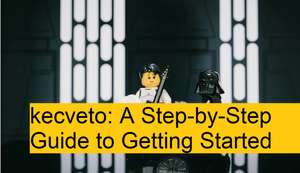
#mymadeinke: A Guide to Making the Most of Your Money
Are you ready to take control of your finances and make the most of your money? Welcome to #mymadeinke: A Guide to Making the Most of Your Money! Financial literacy is not just a buzzword; it's a crucial skill that can empower you to achieve your goals and secure your future. From budgeting tips to smart shopping strategies, this blog will equip you with the knowledge and tools you need to navigate the world of personal finance successfully. Let's dive in and start on the path towards financial freedom together!
The Importance of Financial Literacy
Understanding the ins and outs of personal finance is like having a superpower in today's world. Financial literacy goes beyond just knowing how to balance a checkbook; it empowers you to make informed decisions about your money. From setting financial goals to understanding complex investment opportunities, being financially literate gives you the confidence to navigate the ever-changing landscape of money management.
Without a solid foundation in financial literacy, you might find yourself drowning in debt or missing out on potential wealth-building opportunities. By educating yourself about budgeting, saving, investing, and more, you can take control of your financial future and build a stable economic foundation for yourself and your loved ones.
So, why wait? Start honing your financial skills today and unlock the doors to a brighter financial future!
Understanding Your Finances: Budgeting and Saving Tips
Managing your finances can feel overwhelming, but with the right approach, it can be empowering. Start by creating a budget that outlines your income and expenses. This will give you a clear picture of where your money is going each month.
Identify areas where you can cut back on spending without sacrificing too much. Whether it's dining out less often or canceling subscriptions you no longer use, small changes can add up to significant savings over time.
Consider setting aside a portion of your income into a savings account for emergencies or future goals. Even saving a small amount regularly can help build a financial cushion.
Take advantage of tools like budgeting apps or spreadsheets to track your expenses and stay accountable to your financial goals. Remember, being mindful of how you spend today can lead to greater financial security tomorrow.
Building Your Credit Score
Understanding the importance of having a good credit score is crucial in today's financial landscape. A strong credit score can open doors to better interest rates on loans, credit cards, and even rental agreements. To build your credit score effectively, start by making timely payments on all your bills and debts. Consistency is key when it comes to maintaining a positive payment history.
Another way to boost your credit score is by keeping your credit utilization low. This means not maxing out your credit cards and only using a small percentage of the available balance each month. Additionally, consider diversifying the types of credit accounts you have open, such as a mix of installment loans and revolving credit lines.
Regularly monitoring your credit report for any errors or discrepancies can also help ensure that your score accurately reflects your financial behavior. By taking proactive steps to improve and maintain your credit score, you'll be setting yourself up for greater financial opportunities in the future.
Investing for the Future
Investing for the future is a crucial step towards securing financial stability and freedom. Whether you're looking to grow your wealth, save for retirement, or achieve specific financial goals, investing can help you reach those milestones.
There are various investment options available, such as stocks, bonds, mutual funds, real estate, and more. It's essential to research and understand each option before deciding where to allocate your money.
Diversifying your investment portfolio can help mitigate risks and optimize returns over time. By spreading your investments across different asset classes, you can reduce the impact of market fluctuations on your overall portfolio.
Consider seeking advice from financial advisors or experts in the field to guide you through the investment process effectively. Their expertise can provide valuable insights and strategies tailored to your specific financial situation and goals.
Remember that investing is a long-term commitment. Patience is key when it comes to allowing your investments to grow steadily over time. Keep track of market trends but avoid making impulsive decisions based on short-term fluctuations.
Making Smart Purchases: How to Shop Wisely
When it comes to making smart purchases and shopping wisely, it's important to start by setting a budget. Knowing how much you can afford to spend will help you avoid impulse buying and stay within your financial limits.
Researching products before making a purchase is key. Compare prices, read reviews, and look for discounts or promotions that could save you money. Remember, just because something is on sale doesn't mean it's always the best deal.
Another tip for shopping wisely is to prioritize quality over quantity. Investing in durable items may cost more upfront but will save you money in the long run by avoiding frequent replacements.
Consider buying second-hand or refurbished items when possible. This not only helps reduce waste but also allows you to get higher-end products at a fraction of the price.
Don't forget to reassess your needs versus wants before making a purchase. Ask yourself if the item is essential or if it's just something you desire in the moment. Being mindful of your spending habits can lead to smarter choices and better financial outcomes in the future.
Achieving Financial Freedom
Achieving financial freedom is the ultimate goal for many individuals. It means having enough wealth and resources to live comfortably without worrying about money constantly.
To attain financial freedom, it's crucial to have a clear understanding of your income, expenses, and savings goals. Creating a realistic budget and sticking to it can help you track your progress towards financial independence.
Investing wisely is another key component of achieving financial freedom. By putting your money into assets that grow over time, you can increase your wealth and secure your future.
Eliminating debt is also essential in reaching financial freedom. Paying off high-interest debts as soon as possible can free up more money for saving and investing in the long run.
Remember that achieving financial freedom is a journey that requires discipline, patience, and smart decision-making. By taking control of your finances today, you can pave the way towards a more secure and prosperous future.
Conclusion
In a world where financial literacy is essential, taking control of your money through budgeting, saving, investing wisely, and making informed purchases can pave the way towards achieving financial freedom. By understanding how to manage your finances effectively and building a strong credit score, you set yourself up for a secure future. Remember that every dollar you save today is an investment in tomorrow. So, take charge of your financial journey with #mymadeinke and watch your wealth grow over time.






